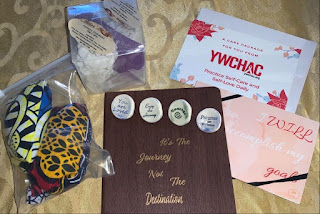YWCHAC
Friday, April 9, 2021
April 10-National Youth HIV/AIDS Awareness Day
April 10 is National Youth HIV & AIDS Awareness Day. #NYHAAD reminds us of the importance of investing in young people’s health and education. School-based #HealthEd provides youth with a safe and supportive environment to learn about HIV prevention. https://go.usa.gov/xsbyA
1 in 5 new HIV diagnoses occurs in young people ages 13-24. This National Youth HIV & AIDS Awareness Day, learn why investing in youth health and education is critical to ending HIV: https://go.usa.gov/xsbyAexternal icon. #NYHAAD
Thursday, April 1, 2021
April is National STD Awareness Month
CDC
In 2018:
- Diagnoses of chlamydia, gonorrhea, and syphilis all increased for the fifth year in a row.
- There were more than 2.4 million diagnosed cases of chlamydia, gonorrhea, and syphilis.
- There were over 200,000 more cases of these STDs than the previous record set in 2017.
From 2014-2018:
- Syphilis cases increased by 81%.
- Gonorrhea cases increased by 67%.
- Chlamydia remained at record highs.
- Congenital syphilis cases more than doubled.
Tuesday, March 9, 2021
#NWGHAAD March 10
CDC: National Women and Girls HIV/AIDS Awareness Day (NWGHAAD), sponsored by the U.S. Department of Health and Human Services, Office on Women’s Health
external iconis observed annually on March 10. NWGHAAD increases awareness, sparks conversations, and highlights the work being done to reduce HIV among women and girls in the United States while showing support for those with HIV.
Monday, February 1, 2021
In recognition of Women's History Month (YWCHAC Series)
In recognition of Women’s History, YWCHAC honors the
young women that have graduated the #WE_SPEAK program through the years.
Tuesday, March 24, 2020
Women's Herstory Live & In Person 2020
In recognition of Women's Her-story Month, YWCHAC celebrates the #WE_SPEAK members who are trailblazers, rock stars and innovators.
Sunday, March 24, 2019
Move & Groove Yoga co-sponsored by YWCHAC
 |
Move and Groove Yoga: Celebration of Women Wellness Event co-sponsored by YWCHAC
move & groove is a wellness initiative that seeks to build community through events focusing on music, movement and mindfulness practices. Move & Groove: Jazz & Yoga is our premier event which features vinyasa yoga and live music. Partnering with the National Jazz Museum in Harlem since 2016, this monthly open-level class pairs Vinyasa Flow yoga with live accompaniment by a rotation of live musicians. Move & Groove: Jazz & Yoga originated as a donation-based class that welcomes new visitors to the museum and supports local musicians. It has been widely received as a ‘Hug for Harlem’ as varied community members have developed a yoga practice while supporting the Museum. It has been an hour and a half of respite for very busy New Yorkers who need a space to rest and restore. We are in the process of expanding to event spaces that can accommodate our growing following and the fanbase of well-known musicians. In addition to monthly event with the Museum, move and groove yoga has been featured in the New York Times and has partnered with ThriveMindfulness project to bring you Reflect + Renew on Martha's Vineyard.
|
 |
| The room was electric & the music was soothing and beautiful |
Wednesday, November 7, 2018
WHY #WE_SPEAK-Women Empowered Support Protect Educate Advocate Know 2018 Mid-Term Elections
 |
#WE_SPEAK Alumni showing off their "I Voted" Stickers
|

By Mary Jordan
More than 100 women were projected to win seats in the House of Representatives, easily shattering the record. Overwhelmingly they were Democrats who helped the party take control of the chamber.
Women have never held more than 84 of the 435 seats in the House. With votes still being counted Wednesday morning, 95 had already been declared winners.
“Women made history in a number of ways and were a significant force in flipping many districts from red to blue,” said Kelly Dittmar, a political scientist at the Center for American Women and Politics at Rutgers University.
Many of the winning candidates campaigned on the need for better health care for all Americans. They come from a wide variety of backgrounds — from military veterans to teachers — and many had never run for office before.
Women also made inroads in gubernatorial races, which are particularly important because of upcoming redistricting battles.
In Kansas and Michigan, women flipped states that had been under Republican control.

Democrat Jennifer Wexton, center, unseated Republican Rep. Barbara Comstock. (Katherine Frey/The Washington Post)
Democratic state Sen. Laura Kelly defeated Republican Kris Kobach, with whom Trump had campaigned in Kansas last month.
Gretchen Whitmer, a former state senator in Michigan, won her race after campaigning on a promise to fix the state’s roads and aging drinking-water infrastructure, and to expand Medicaid to lower-income adults.
Notably, Michigan Democrats selected a woman for every statewide office on Tuesday’s ballot: governor, U.S. senator, attorney general and secretary of state.
Georgia had the highest-profile governor’s race. Stacey Abrams, a Democrat who won the backing of former president Barack Obama and Oprah Winfrey, was aiming to be the first black female governor in the nation.
But she was trailing early Wednesday behind Trump-backed candidate Brian Kemp, Georgia’s secretary of state, who cast himself as a “politically incorrect” hard-line immigration candidate like the president.
The women who ran this year were remarkably diverse — black, Latina, Native American. But noticeably absent on ballots were more Republican women.
“We need to go out and get our women engaged,” said Sarah Chamberlain, president and CEO of Republican Main Street Partnership. “We are being dwarfed by the Democrats. This is something we are going to focus on.”
Chamberlain said she hears voters in key districts talking mostly about an affordable health-care system that serves everyone, even those with preexisting medical conditions. That has been the loud and clear message of many Democratic candidates.
The new faces coming to Congress include:
Alexandria Ocasio-Cortez in New York, 29, a Latina who defeated incumbent Joseph Crowley in a decisive primary, is heading to the House.
In Virginia, Democrat Jennifer Wexton unseated Republican Rep. Barbara Comstock.
Deb Haaland, a Democrat in New Mexico, will be one of the first Native American women to serve in Congress.
In Florida, Democrat Debbie Mucarsel-Powell, an immigrant from Ecuador and an educator, focused her campaign largely on health care and toppled Republican Rep. Carlos Curbelo. Curbelo had voted to repeal Obamacare in a district that contains thousands of people who benefited from it.
Michigan’s Rashida Tlaib, born in Detroit to Palestinian parents, and Minnesota’s Ilhan Omar, who arrived in the United States from Somalia at age 14, won their House races, becoming the first Muslim women elected to Congress.
At a rally in Minneapolis on Monday night, Omar was cheered wildly, and danced as she was introduced.
“The opportunity to be here, to participate in this democracy, has made me want to dance, and door-knock and talk to people and invite people to the joy of what it means to participate in a democracy,” she told a crowd of volunteers.
“What I want to do for you is have my energy be contagious,” she said.
Some GOP women won key races.
Marsha Blackburn, who called herself a “hardcore, card-carrying conservative,” became the first female senator ever elected from Tennessee. Backed by Trump in the Republican state, she defeated Phil Bredesen, a centrist Democrat and former governor.
Democrats did not fare well as well in the Senate as they did in the House.
In Missouri, one of the few Democratic women in the Senate, Claire McCaskill, was defeated by Republican state attorney general Josh Hawley.
While men with military backgrounds have long been recruited to run for office, this year many of the candidates who drew the most attention were female veterans.
Chrissy Houlahan, an Air Force veteran and first-time Democratic candidate, won in Pennsylvania’s 6th Congressional District race, replacing retiring Rep. Ryan Costello, a Republican.
Mikie Sherrill, a former Navy helicopter pilot and Democrat, won in New Jersey’s 11th Congressional District. She said she was motivated to run for office by what she calls a “lack of respect” for women by the Trump administration and was astounded to see an all-male Senate panel debating whether to repeal the Affordable Care Act last year.
But one of the most well known, Kentucky Democrat Amy McGrath, a former Marine fighter pilot, lost a close race to Republican incumbent Andy Barr. Trump had won that district handily.
Democrat Abigail Spanberger, a former CIA operative, pulled off a big win in Virginia by unseating Republican Rep. Dave Brat, a rising star among conservatives.
Four years ago, Brat defeated Eric Cantor, then the House majority leader, in a stunning upset. Brat was part of the House Freedom Caucus.
In Arizona, a close race between Republican Martha McSally, a former Air Force fighter pilot, and Democrat Kyrsten Sinema, who is openly bisexual, means that Arizona will have its first female senator no matter who wins.
They are vying for the seat being vacated by Republican Sen. Jeff Flake.
A record 33 of the Tuesday’s matchups for Congress were women vs. women. In Florida, Democrat Donna Shalala, the former president of the University of Miami and Cabinet member during the Clinton administration, defeated Republican Maria Elvira Salazar, a broadcast journalist of Cuban heritage, according to early results.
“Are women fired up? That is putting it mildly,” said Jen Cox, a founder of PaveItBlue. Her group, one of many formed since Trump’s election and after the Women’s March, connected thousands of women in the Atlanta area interested in becoming more politically active.
“It’s historic. It’s our turn in having a say in changing the face of politics,” Cox said.
Dittmar, from Rutgers, said the female candidates in 2018 did not fit any particular mold. She noted that even with the gains, women were still underrepresented.
The United States trails behind many other countries, from Mexico to Britain, in the legislative representation of women.
Still, Dittmar said Tuesday’s election “was a significant jump, it wasn’t incremental.”
Along with better health care, other key issues that helped propel women were their pledges to better protect the environment and to help stop the rising incivility and divisions among Americans.
“This is only just the beginning,” said Stephanie Schriock, the president of Emily’s List, an influential Democratic-leaning group that supports women in politics. “I think we are going to see a historical turnout of women in 2020 — this is not dying down.”
Torey Van Oot in Minneapolis contributed to this report.
https://www.washingtonpost.com/video/politics/2018-midterm-election-a-night-of-firsts/2018/11/07/e0aad16e-e262-11e8-ba30-a7ded04d8fac_video.html
Tuesday, November 6, 2018
I VOTED 2018
Varying opinions, hence the IMPORTANCE of voting in this year's Mid-Term Elections
It's not the 'Year of the Woman.' It's the 'Year of the Women'
(CNN)Since the early primaries began for the 2018 midterm elections, it's been a year of firsts and to many, a year of the woman. In the midst of this election, the first significant national vote since the election of Donald Trump, Brett Kavanaugh's nomination and confirmation battle only amped up the existing pressure on questions of gender, power, women's health and women in elected office.
CNN Opinion asked thinkers to weigh in on 2018 as a Year of the Woman. The views expressed here are solely theirs.
Laura Coates: The only thing coming to save us is a ballot in shining armor
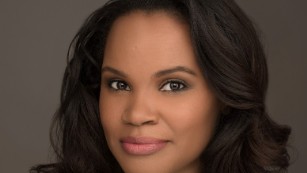
Laura Coates
One can be heard without being listened to. Women voters have long felt the impact of this nuance, and the Kavanaugh confirmation hearing exemplified it. Both sides of the political aisle preached that women, particularly women alleging sexual misconduct, should be heard. Cries for due process, notice of the charges against someone accused and meaningful opportunity to be heard echoed throughout both chambers of Congress and reverberated throughout the nation. The actual mechanisms to facilitate sound were provided: a microphone, a camera, and a platform. The intangible mechanisms of listening, however, were regrettably absent. Women noticed.
Hearing is passive and non-purposeful. Listening is an action. Women voters should and are demanding more than patronizing passivity. As was the case in the year following Anita Hill's testimony more than a quarter century ago, women are keenly aware (perhaps now more than ever) that they cannot afford to wait for receptive ears. Women are prepared and capable of voting for (or being elected by) those whose policies in practice reflect our collective values, strengths, empathy, intellect, and power.
The Venus symbol for women is thought to represent a bronze mirror atop a handle. For at least the past two years, women have held a mirror up to America and recoiled at its reflection. The democratic fairy tale doesn't exist. The only thing coming to save us is a ballot in shining armor. When we raise our voices on Election Day to ask the proverbial "Mirror Mirror on the wall, who's the right candidate to listen to us all?" - - a woman will respond.
Laura Coates is a CNN legal analyst. She is a former assistant US attorney for the District of Columbia and trial attorney in the Civil Rights Division of the Department of Justice. She is the host of "The Laura Coates Show" on SiriusXM. Follow her @thelauracoates.
Helen Alvaré : A 'Year of the Woman' won't be enough
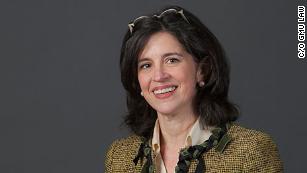
Helen Alvaré
It's more than a little difficult to get excited about this so-called "Year of the Woman" in politics. While I would love to believe that a larger female share of federal lawmakers will mean a better life for US women, I don't have the evidence to support this, especially considering women's record since the last year of the woman, 1992.
I think this is because a lot of female politicians -- like a lot of male politicians -- mistake legalized abortion or free contraception for the sum of "feminism," while failing to solve the problems women suffer most.
Women are pro-life and pro-choice, while indisputably in serious need of other kinds of laws and policies. Women suffer more poverty than men and need state action prioritizing the poor. Women practice religion more than men, being more likely to pray daily, attend services weekly, and report that God is very important in their lives. Women are more likely than men to report that they would like to have more flexible work arrangements and paid family leave to care for loved ones.
To date, however, both female and male politicians spend most of their time attending to middle-class and wealthier Americans. And I can't point to sustained, bold action on the part of female representatives on religious freedom or paid or flexible leave.
I haven't given up hope that elected women will bring women's needs to the table more forcefully. I am only saying that their sex doesn't guarantee it, and that female citizens will not be absolved of their duty to agitate for what women need most.
Helen Alvaré is a professor of law at George Mason University who has published widely on issues of marriage, family, parenting and First Amendment religion clauses. Her recent book with Cambridge University Press is about putting children's interests first in US family law.
Karine Jean-Pierre: If 1992 was Year of the Woman, 2018 must be Year of Accountability
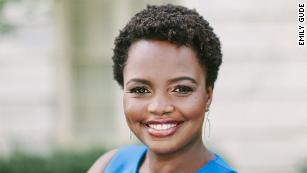
The year 1992 was the first election year to be proclaimed the "Year of the Woman." It was the year after the Anita Hill hearings -- and the year when an unprecedented number of women ran for office. Illinois' Carol Moseley-Braun won her race, becoming the first black woman ever elected to the Senate. Along with her, a wave of women took political office.
Now, in 2018, it's been 26 years since the "Year of the Woman" -- and yet, we still live in a country where women are treated as lesser, where medicine is designed often without women in mind, where maternal mortality rates are far higher than those of our peer countries. And where a man credibly accused of sexual assault and harassment can still be confirmed to the US Supreme Court.
In 2018, another "Year of the Woman" won't be enough. It isn't enough to elect women -- though we urgently should do that. And it isn't enough to believe women like Dr. Christine Blasey Ford if you still choose to confirm her alleged attacker to the Supreme Court.
So if 1992 was the "Year of the Woman", then 2018 must be the "Year of Accountability." And in the "Year of Accountability", we must demand accountability from everyone who fails to support women and our needs, no matter their race, gender, or political party.
We will demand accountability from the 45 men who voted for Brett Kavanaugh, as well as Susan Collins and the four other Republican women in the Senate who joined her.
We will demand accountability from the 53% of white women who voted for Donald Trump.
We will demand accountability from every member of Congress and local government who fails to adequately address the maternal health crisis that disproportionately affects black women.
In 1992, the "Year of the Woman" was an important and consequential feat, bringing our country's electoral representation closer to our demographics. But we've learned from time and experience, and from our greatest teachers, that simply supporting women isn't enough. In 2018, women need more than just support and votes. We need full accountability.
Karine Jean-Pierre is the senior adviser and national spokeswoman for MoveOn. She is also a lecturer in international and public affairs at Columbia University.
Sally Kohn: Win or lose, women are changing politics, permanently
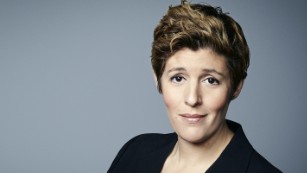
Sally Kohn
No matter what happens on Tuesday, the record number of women running for election this year is undoubtedly going to change politics permanently, for the better. But what's also significant is that many of the women running aren't conventional candidates. These aren't elite career politicians making their run at the next rung of politics. They're single moms and school teachers and public interest lawyers who want to make a difference for their communities and their countries.
Take Kara Eastman, a Democrat running in Nebraska's 2nd Congressional District. Raised by a single mom, Eastman started the Omaha Healthy Kids Alliance to ensure that children have access to homes free of lead and other environmental hazards. And she was on the board of her region's community college. She's running against an incumbent Republican who has vowed to gut the Environmental Protection Agency and Department of Labor.
Or consider Katie Porter, a Democrat running for California's 45th Congressional District. Porter has spent her career as a consumer protection attorney going after big banks financial institutions that cheat consumers. She teaches consumer law and was appointed a few years ago by then-California Attorney General Kamala Harris to be the state's watchdog against big banks. Porter is running against a Republican incumbent who was an investment banker until entering politics 22 years ago.
A community-based environmental activist challenging an anti-EPA climate-change denier and a banking consumer watchdog challenging a big-bank friendly career politician. These challengers aren't just changing politics because they're women. They're changing the game with their range of expertise and experience they bring to the table as candidates who represent real people and their concerns, not just special interest elites. Politics will hopefully never be the same.
Sally Kohn is a CNN political commentator and author of the book, "The Opposite of Hate."
Van Jones: Women of color are starting to get the respect that they deserve
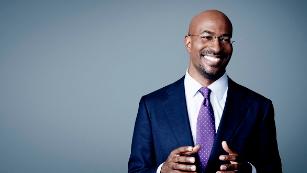
A scandal-tarred, extremist Republican. Accusations of sexual misconduct. A southern state where Democrats rarely compete. Attempts to suppress the black vote. A multi-racial, populist coalition putting in the work.
That was the scene in December 2017, when Doug Jones upset Roy Moore in a special election for Alabama's Senate seat.
Now, with 2018 tagged as a successor to 1992's "Year of the woman," that Alabama contest deserves a second look. In the wake of Jones' surprise victory, it quickly became clear who was responsible for it: black women. Black women put in the long hard volunteer hours. Black women got their families, friends, neighbors and churches to the polls. Black women voted 98%for Doug Jones.
It is really no surprise. Black women have been the backbone of the Democratic Party for decades. All that has changed is that women of color are starting to get the credit they deserve.
They are also in leadership roles. That is an overdue and welcome development. From Ayanna Pressley in Massachusetts to Ilhan Omar in Minnesota to Stacey Abrams' historic bid for governor in Georgia, black women are not just singing in the choir but preaching from the pulpit.
That fact is even more true when you pull back the lens and look at the waves of all women of color -- Native American, Palestinian, Latina, more than I can mention -- determined to make history in November. In the GOP stronghold of Idaho, a young Democrat named Paulette Jordan could become the first-ever Native American governor.
With all the attention on the new "Year of the woman," I hope we do not lose sight of the beautiful rainbow of women of color who are leading the charge and organizing behind the scenes. Whether or not a blue wave materializes, their voices and concerns deserve to be at the center of conversation in 2019 and beyond.
Van Jones is the host of the "The Van Jones Show" and a CNN political commentator. He is the co-founder of #cut50, a national, bipartisan criminal justice initiative of the Dream Corps.
Subscribe to:
Posts
(
Atom
)


.JPG)















